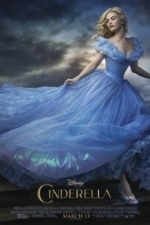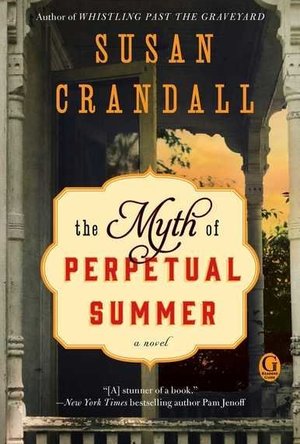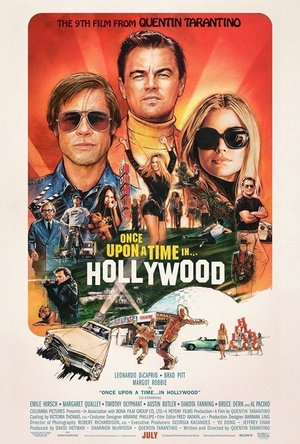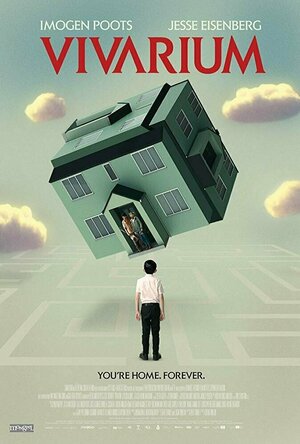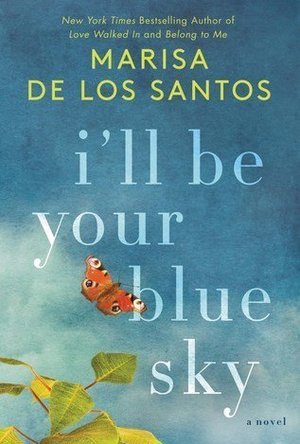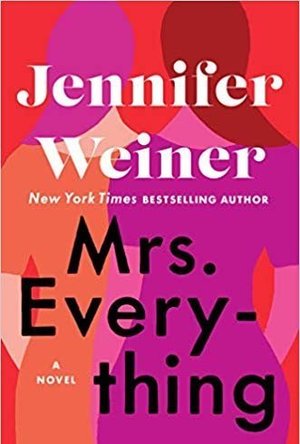Movie Metropolis (309 KP) rated Cinderella (2015) in Movies
Jun 11, 2019
However, the studio has in recent times, taken to reimagining its classics as live-action adaptations with last year’s Maleficent starting a generation that will include Beauty & the Beast and a Tim Burton directed Dumbo. The latest offering is Cinderella, but does it hold a candle to its animated counterpart?
The plot of Cinderella needs no introduction, the classic tale of rags to riches and love conquering all doesn’t need an update and director Kenneth Branagh (Thor, Jack Ryan: Shadow Recruit) is just the man for the job.
Following the story of young Ella as she comes to terms with the loss of her parents and the arrival of her overbearing step-cinderella_poster_a_psisters and step-mother, Cinderella is a wonderfully acted and beautifully realised film that borders on a little syrupy at times.
Downton Abbey’s Lily James takes on the title role with a brilliant Cate Blanchett giving her all as Ella’s wicked step-mother. Helena Bonham Carter also stars as Ella’s fairy godmother and brings her usual brand of crazy to the character.
What sets this adaptation apart from Angelina Jolie’s Maleficent is its stunning visuals. Where Maleficent was beautiful in its own way and suited the film’s dark tone, here Kenneth Branagh throws every colour on the spectrum at the screen in breath-taking fashion.
The outfits are to die for and the locations are an explosion of bright colours and textures that are juxtaposed exceptionally with the dark, damp quarters our princess is confined to.
Elsewhere, the performances are, on the whole, sublime. James is good in the titular role but the plodding script lets her down. She comes across, as awful as this sounds, a little idiotic and lacks the charming spirit of her animated counterpart. The same can be said for her prince, played by Richard Madden – though this could be down to the story rushing their love somewhat.
By far the standout is Cate Blanchett, who is truly mesmerising as stepmother Lady Tremaine. Her brash and ridiculously over-the-top performance suits the pantomime feel of the production down to the ground. Unfortunately, her evil is heavily restrained by the film’s U certification, even more so when compared alongside the 1950 film.
Nevertheless, the visuals are simply stunning. Everything from the palace to Ella’s iconic ball gown and all of it in between is nearly flawless with only a few lapses in cartoonish CGI letting things down – though this can be forgiven with the film’s pantomime-esque nature.
Overall, this live-action reimagining of the 1950s classic musical does not in any way attempt to better its predecessor. Instead it wishes to sit alongside it as the studio tries to pave the way for a whole new generation of children to fall in love with Disney’s princesses once again.
Only a few lapses in CGI, a plodding script and a sickly sweet tone stop it from being enjoyable for everyone in the family, instead of just the kids.
https://moviemetropolis.net/2015/03/31/sickly-sweet-cinderella-review/
FilmIntuition (33 KP) rated The Myth of Perpetual Summer in Books
Jun 19, 2018
Moving back and forth in time between 1972 and the late 1950s and early '60s, after she learns that her younger brother has been arrested for murder in a crime that's captured national attention, Tallulah James leaves the California home she's made for herself and returns back to her southern hometown where every corner holds dozens of memories.
Wondering where it all went wrong, after she finds unexpected help for her brother's case from an old crush and family friend, Ross Saenger, Tallulah begins seeking out answers for the many mysteries of the past including the truth about her brilliant but unstable father's family tree as well as her parents' turbulent relationship.
After beginning with quite the plot hook, the pace slows down considerably with Myth requiring a good eighty or so pages to establish both its characters and momentum to the point that it's hard to put down.
Having drawn comparisons to both The Secret Life of Bees and Forrest Gump, Crandall's Myth is also reminiscent of Mary Karr's memoirs. But while Myth eventually leads a majority of its characters to well earned conclusions, it's still slightly disappointing to see how quickly the author wraps up certain plot points. In fact, it's a main source of trouble for the otherwise moving last hundred pages of the novel. And nowhere is Crandall's difficulty in judging her reader's interest better epitomized than her decision to spend far more time on a romantic backstory with Tallulah and a character who appears out of thin air (whom we could care less about) than the one that Crandall built for nearly the entire length of the novel that pays off in two pages.
Though limited by the decision to present us with only one character's point-of-view, while the romantic plotline was in great need of either more obstacles or reflection, so were other characters throughout, including the one that's sure to be a reader favorite in the form of Tallulah's protective older brother, Griff. A major protagonist in the novel's extended flashback, I couldn't help but have wished he played an even greater role in the present day '70s storyline as he did in the past.
From the blink and you'll miss it decision for a main character to run away to the solution of a murder – both of which occur in a mere page or two – while there's enough going on in the plot and character heavy book to forgive some of its lopsided storytelling, Myth should've spent less time on extraneous subplots and more ink on what really matters.
Nonetheless a lovely work of Southern Gothic fiction anchored by a strong female protagonist, Crandall's promising Myth may have its flaws. But like a good glass of lemonade on a hot summer day, you can't enjoy the sweet without the sour and thankfully there's enough of both here to keep you coming back for more.
Note – I received an ARC of the novel through Bookish First and if given the opportunity, I would've rated it 7.5 stars.
Benedick Lewis (3001 KP) rated Once Upon a Time in Hollywood (2019) in Movies
Aug 16, 2019
Emma @ The Movies (1786 KP) rated Vivarium (2020) in Movies
Mar 8, 2020
Tom and Gemma are looking to take the next step in their relationship, getting their very own home. On a whim they visit an oddly minimal estate agents where they meet Martin. Martin is enthusiastic about the chance to show them the perfect home in the perfect community, Yonder.
When they arrive in the deserted town it's instantly strange. Every house looks like the last, every street looks like the next, and Martin's enthusiasm never waivers. They decide to "dine and dash", politely look around and then leave to laugh about the whole experience on the way home, but as they complete their tour they realise that Martin has gone.
As the couple head home in their car they realise they're somehow lost, the simply designed neighbourhood has become a labyrinth that keeps leading them back to that same house. Maybe this is home after all.
Writing that extended synopsis was an exciting reminder of the idea at the core of Vivarium. Its story would definitely fit well into the recent trends of Black Mirror, Dimension 404 and Twilight Zone, and that was something that slightly hindered my enjoyment. Those formats work well in a compact episode size chunk, the film is only 97 minutes long but the content seems to have been stretched out to fit that runtime.
Towards the end of Vivarium we're introduced to a lot of information that you don't really have enough time to process, so much so that it feels like a rather unsatisfying development. That's where the similarities to the TV show idea ends, could it have benefitted from a sharper end? I'm not sure, perhaps that is all just part of the intrigue.
Jesse Eisenberg and Imogen Poots made quite a good match in the leads, from the off you can see their nature coming through, they're in sync and happy. As the situation deepens and they get more confused and frustrated you see them pulling apart while simultaneously clinging to each other because they're all that they have in the world. It's a lot of ups and downs for the characters to go through and yet the pair manage to make it work, with so much of (basically all of) the film relying on this dynamic I'm pleased that there was such a strong performance from them both.
It's difficult to express the way I feel about this film, I love the idea, the acting was great and the design of the town and the sets were picture perfect in that agonising horror kind of way (it reminded me of the fake 1950s towns they'd set up for atomic bomb testing), where I'm on the fence is the ending. Throwing in the scene that was out of tune with the rest of the film didn't add intrigue for me, but that being said, I'm still thinking about the film months after seeing it so... did it?
While my score might not necessarily seem like a recommendation I honestly think that everyone will take something different away from this about a wide range of things. I swing wildly between remembering the film without that ending to with it, and I don't know which version of the town I prefer seeing in my head...
Originally posted on: https://emmaatthemovies.blogspot.com/2020/03/vivarium-movie-review.html

Transistors Handbook
Education and Reference
App
Transistors Handbook - Your Transistor Guide. This app will guide you to know, choose, select and...

Pocketbooth Photo Booth
Photo & Video and Entertainment
App
Turn your iPhone, iPad, or iPod touch into a 1950s-era vintage photobooth with Pocketbooth: the...
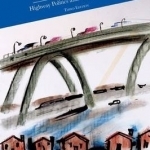
Interstate: Express Highway Politics, 1939-2009
Book
This new, expanded edition brings the story of the Interstates into the twenty-first century. It...

Fiete Cars
Education and Games
App
In Fiete Cars the children are the master builders. In this app kids can create their own car game....
Kristy H (1252 KP) rated I'll Be Your Blue Sky in Books
Feb 26, 2018
I absolutely adore Marisa de los Santos and was really excited to see she had written another book picking up on the characters first introduced in Love Walked In: A Novel and Belong to Me. Both still hold a place of honor on the bookshelves of my home. Still, Goodreads told me it was nearly ten years since I'd read those gems. Considering I can forget a lot of what I've read a few months ago, it took a little remembering and time to get back into the characters. There's a lot to keep track of in the beginning. Still, once I got into the groove, it was like being back with old friends.
Getting to know more about Clare--all grown up now--is lovely. You find yourself drawn to her immediately. Her finance, Zach, made me nervous from the start, and in many ways, the novel can be a little stressful, between Clare navigating Zach, learning about what Edith was up to, and just some of the general topics of the novel. I always know a book is well-written when I find myself getting nervous on the characters' behalf.
The book generally alternates chapters between Clare and the story of Edith, the woman she meets at her wedding venue. Edith's story mainly takes place in the 1940s and 1950s, and I found myself always wishing for more and more of her tale, as she's a fascinating character in her own right. As Clare moves into Edith's old home and starts to investigate the woman's past, we learn a little more about her through Clare and Dev's sleuthing. It's a very effective format, and I found the book surprisingly suspenseful, with several unexpected twists and turns thrown in along the way.
Indeed, I was never really sure where this one was going. It meanders a bit and kept surprising me as it did. There are points where the sadness can be really hard and heartbreaking (in a wow, this novel is incredibly well-written and I feel as if these characters are real way). All the characters fit together so well and come to life before you--no surprise to anyone who has read a Marisa de los Santos novel before. It's so easy to get lost in the world she creates for us. At other times, I just found myself laughing, as Clare and Dev, for instance, could just be so funny and real.
In the end, I just wound up really loving this one. I was along for the ride wherever Clare and her gang were going to take me. I loved her, I loved Edith, and now I'd wait ten years for another book without any issue whatsoever. It's a lovely book about connections and about the family we have and the family we make. It's about love (very appropriate that I finished it on Valentine's Day). Thanks for revisiting these characters, Ms. de los Santos. I didn't know I needed them again, but I'm glad you did. 4+ stars.
I I received a copy of this novel from the publisher and Edelweiss in return for a honest review. More at http://justacatandabookatherside.blogspot.com/
Kristy H (1252 KP) rated Mrs. Everything in Books
Jun 21, 2019
This is a really wonderful novel from Jennifer Weiner. In the beginning, she states that she always wanted to write about a woman like her mom, who was born in the 40s, came of age in the 60s, married and had children, but then divorced and ended up falling in love with a woman. By then, times had changed and she could live a very different life than when she was born. Framing the story in this way makes perfect sense, and I think Weiner has more than fulfilled her goal. She's written a gorgeous and sweeping epic novel, starting with Jo and Bethie as children and continuing throughout the majority of their lives.
The novel, as mentioned, starts with Jo and Bethie as kids, moving into a new house in Michigan. Each is hopeful for a new start to their small kid-sized lives. Already Jo is feeling different. The book is told from both Jo and Bethie's perspectives, and Weiner does a wonderful job of not only capturing each of their own unique voices, but telling the story from their perspective at that particular time period.
"But maybe, in this new place, she could make a fresh start. Maybe here, she could be a good girl."
From the beginning, we clearly see how much trouble Jo is to her mother, and how she struggles with her feelings of being different. She's a tomboy who hates dresses and loves sports. She doesn't want to date the boys that her other classmates fawn over. I had no idea that the book was going to cover Jo's sexuality in this way, and it was such a pleasant surprise. It's so well-done. I loved the unexpected storyline about this intelligent and strong girl/woman struggling with her sexual orientation during a time period where it not at all accepted: it was very poignant and touching.
"I am going to leave here, she thought. I am going to read, and I am going to write. I am going to find a girl who is brave enough to love me, and I am going to have the kind of life I want."
So this book touches on a lot of tough subjects--racism, immigration, feminism, sexual orientation, religion, sexual assault, and more. It offers a discussion on womanhood, motherhood, marriage, and the options available to women (or not). Perhaps in the hands of a lesser author, this would all be too much, but through Weiner's deft writing, it's really truly beautifully done. The book spans a huge time period, but it never feels rushed or as if too much is crammed in. Once you get into Jo and Bethie's story, you're there: you are part of the family. And truly, this is a story of family at its core. A bitter family, perhaps, at times. It's a story of how certain moments can change the course of your life. But it's also a story of love and sisterhood, in all its many forms.
"'You think I ruined your life? Well I think you ruined mine.'"
Overall, this is a really lovely book. It's heartbreaking at times, for sure, and I cried at the end, but it's a testament to how much I fell for these two sisters. Its story of strength and love is a wonderful theme. It's a book for and about women, with some excellent messaging about women and society. (Wow, so much has changed and yet so little, it seems.) I certainly recommend this one. 4.5 stars.
